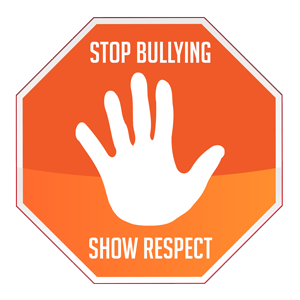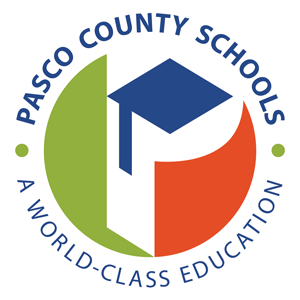Resource Spotlight
Calming Coloring Sheets (WORD)
Calming Exercises (PDF)
Calming Tool Virtual Resources (PDF)
Chill Skills Kit (PDF)
Grounding Template (PDF)
Perry States of Arousal (PDF)
SEDNET Sample Calming Area (PDF)
Understanding Regulation Parent Training (PDF)
ACCESS
Access of Florida provides resources that facilitate the teaching and learning of access points.
Agency Resources and Web Sites
Please find more information regarding local, state and national agencies by visiting the Agency Information page.
ABC Program
The purpose of the ABC Program is to match community individuals and groups with needy children in order to provide basic essentials, thus enhancing the possibility for the children’s success in school.
Bright Futures Scholarship
Enacted by the 1997 Florida Legislature, the Bright Futures Scholarship Program restructured the state’s two existing scholarship programs-the Florida Undergraduate Scholars’ and the Gold Seal Vocational Endorsement Scholarship Awards into the Florida Bright Futures Scholarship Program.
Brochures
The district Brochures Web Page offered a series of brochures on a variety of topics including 504, bullying, CARD, public health, school psychology and other useful information for parents.
Center for Autism and Related Disabilities (CARD)
The Center for Autism & Related Disabilities at USF is a community-based project that provides information and consultation to individuals diagnosed with autism spectrum disorders and related disabilities. CARD-USF offers instruction and coaching to families and professional through a training and assistance model.
Services: CARD Family Services and Resources
Career Education
Career education programs are available to students and their families at all school levels. These services are coordinated by the district Student Services Department and implemented by guidance counselors, career specialists, and student services teams at each individual school.
Child Labor Law
The purpose of the Florida Child Labor Law, Chapter 450, part 1, Florida Statutes, is to protect the health and education of minors under the age of 18 who work in the State of Florida.
Discipline
Please visit the Student Discipline page for more information regarding the Student Code of Conduct, expulsions, and other student discipline issues.
English for Speakers of Other Languages (ESOL)
The ESOL Program is a collection of services that support Kindergarten through 12th grade student English language development and academic achievement. The program also seeks to promote cultural responsiveness and equitable practices to best serve our English Language Learners (ELL) students. At the ESOL Family Resources link, you will find information regarding our ESOL program, the Florida Consent Decree, resources for language development, cultural support, information regarding parent involvement and our monthly newsletters.
ESE Programs and Services
Please see the ESE Programs and Services web page for more information regarding what we offer as well as related links to the Florida Department of Education web site.
Family Cafe
The Family Cafe exists to provide individuals with disabilities and their families with an opportunity for collaboration, advocacy, friendship and empowerment by serving as a facilitator of communication, a space for dialogues and a source of information.
Family Network on Disabilities
The Family Network on Disabilities operates on the following programs across Florida: Parent Education Network (PEN), Parent Support Network (PSN), Parents of the Panhandle Information Network (POPIN), Family Star and United Families. All of these programs are designed to ensure that parents of children with the full range of disabilities and mental health challenges have the training and information they need to prepare their children for school and be able to lead productive, independent lives to the fullest extent possible. These programs offer free help and information to families of student with disabilities and the professional that serve them.
Florida Center for Students with Unique Abilities
Florida Center for Students with Unique Abilities provides support to students, families and institutions of higher education so that students with intellectual disabilities have opportunities for on-campus college experiences that lead to employment opportunities.
Florida Diagnostic & Learning Resources System (FDLRS)
The Florida Diagnostic & Learning Resources System (FDLRS) is a discretionary project of the Florida Department of Education that provides diagnostic, instructional and technology support services to district exceptional education program and families of students with disabilities. FDLRS Gulfcoast is one of eighteen service centers statewide, with direct service provided to Pinellas, Pasco and Hernando Counties.
Parent Services: https://www.fdlrsgulfcoast.org/parent-services
FLDOE Exceptional Student Education Parent Resources Page
Visit the State DOE Parent Information page.
Gifted Services
Please click Gifted Services page for more information regarding Gifted Services for your child.
Immunization Information
Please visit the immunization webpage for the most current requirements and related information.
Individual Education Plans (IEP) and 504 Plan Concerns
Pasco County Schools is committed to providing all students, including those with disabilities, the resources and support necessary to achieve their personal and academic goals as outlined in their Individual Education Plans (IEPs) and 504 Plans.
If you have specific concerns or questions related to your child's educational experience, please reach out to the Student Support Specialist assigned to their school. They are available to assist you in ensuring that your child's needs are being met. Below is a list of the Student Support Specialists by school. Thank you for partnering with us to support your child's educational journey.
If you need additional assistance after working with your child's Student Support Specialists, please access our additional resources page.
Medication at School
Please visit the medication at school webpage for the most current forms, requirements and related information.
Migrant Education Program
The goals of the Pasco County Migrant Education Program are to ensure that migrant students whose families have moved at any time in the last three years to seek/obtain work in agriculture, packing, fishing, dairy, livestock or forestry are offered academic and/or social services. Goals of the program also include resources to ensure parents of migrant children are meaningfully involved in efforts to improve the academic performance of their child and migrant students are prepared for post-secondary education or employment.
Multi-Tiered Systems of Support
Response to Intervention (RtI) has been described in Florida as a multi-tiered system of supports (MTSS) for providing high quality instruction and intervention matched to student needs using learning rate over time and level of performance to inform instructional decisions. Please visit Florida's MTSS website for more information.
Parent Collaborative Network for Students with Disabilities
The Parent Collaborative Network for Students with Disabilities (PCN) is composed of parents, community representatives, teachers and administrators. The focus of the PCN is to share information, discuss ides, review concerns and provide input on current initiatives for students with disabilities
You can find information for the current school year meetings here.
Project 10
The mission of Project 10: Transition Education Network (Project 10) is to assist Florida school districts and relevant stakeholders in building capacity to provide secondary transition services to student with disabilities in order to improve their academic success and post-school outcomes. Project 10 serves as the primary conduit between the Florida Department of Education (FDOE) Bureau of Exceptional Education and Student Services (BEESS) and relevant school district personnel in addressing law, policy, effective practices and research-based interventions in the are of transition services for youth with disabilities.
Family Services: Project 10 Family Services
School Counseling
Counseling services are available to students and their families at all school levels.
Section 504
Section 504 of the Rehabilitation Act of 1973 is a federal civil rights statute prohibiting discrimination on the basis of disability in any program or activity receiving federal financial assistance. Section 504 guarantees the right to full participation and access to a free appropriate public education (FAPE). The Section 504 brochure provides further information. For questions, please contact the Section 504 Coordinator at your child(ren)'s school.
SEDNET
The Multiagency Network for Students with Emotional/Behavioral Disabilities (SEDNET) creates and facilitates a network of key stakeholders committed to assisting in the provision of a quality system of care for students with or at-risk of emotional and/or behavioral challenges.
Student and Family Resources: https://sednetfl.info/Resources.aspx
Special Olympics
The official Pasco County Special Olympics Page has information about Special Olympics in Pasco County. Dates have been scheduled for Pasco County Special Olympics for the current school year.
Students In Transition Program (S.I.T.)
Authorized under Federal law through the McKinney-Vento Homeless Education Assistance Act, the Students In Transition Program (S.I.T.) provides services to ensure identified homeless children and youth have access to a free and appropriate public education by removing barriers due to homelessness.
Title One
Transition Services and Diploma Options
For information and resources regarding transition planning from high school to post-school adult living and high school graduation requirements/diploma options go to the Transition Resources web page.
(1/3/22)








